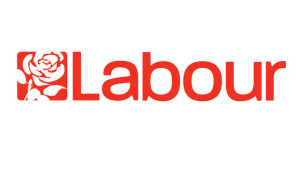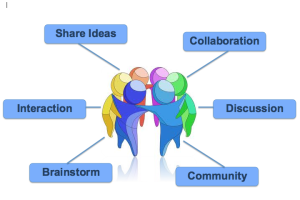 The NHS is a national treasure. And we all know, (because the media tells us again and again) that it is failing and our metanarrative is becoming one of crisis, inaffordablity and criticism of poor care. We want to keep it, save it and make it sustainable for the future. But there is a major problem. We simply cannot agree from our differing political positions how to make this happen. And no one perspective can be the whole truth and nothing but the truth and yet each ideology is so entrenched that rather than working creatively to find solutions together (as was called for again this week by MPs of 3 different parties), there is an ever more pathetic mud-slinging match and deepening suspicion of the ‘other’, which will do nothing to help us collaborate in creating a truly amazing, sustainable, affordable and accessible health and social care service for the generations to come.
The NHS is a national treasure. And we all know, (because the media tells us again and again) that it is failing and our metanarrative is becoming one of crisis, inaffordablity and criticism of poor care. We want to keep it, save it and make it sustainable for the future. But there is a major problem. We simply cannot agree from our differing political positions how to make this happen. And no one perspective can be the whole truth and nothing but the truth and yet each ideology is so entrenched that rather than working creatively to find solutions together (as was called for again this week by MPs of 3 different parties), there is an ever more pathetic mud-slinging match and deepening suspicion of the ‘other’, which will do nothing to help us collaborate in creating a truly amazing, sustainable, affordable and accessible health and social care service for the generations to come.
I am about to caricature and overstate the various positions.
 The Tories believe in a small state and the devolution of powers. They would see the NHS being broken up into regions which might be able to work more effectively in networks. They believe in order to have a strong NHS, we must have a strong economy. In order to have a strong economy, we must create wealth through private business, have low taxes, increase austerity and shrink the public sector. Ideologically they believe in a free trade market and that the NHS should be subject to the same free market forces as any other kind of business, which is why they like the TTIP. They believe that the NHS is only sustainable if run by private companies, who they think will do a more ‘efficient’ job than the current management structures – and yet they can point to shining examples of those who do it extremely well under the current operational system, like Salford Royal. They believe competition drives up excellence. They believe in personal responsibility in determining ones own health. They believe that clinicians should have more leadership in the NHS. In order to make the NHS sustainable, however, they want to invest £8 billion over 5 years whilst making efficiency savings (which are different to cuts, you understand) of £12 billion.
The Tories believe in a small state and the devolution of powers. They would see the NHS being broken up into regions which might be able to work more effectively in networks. They believe in order to have a strong NHS, we must have a strong economy. In order to have a strong economy, we must create wealth through private business, have low taxes, increase austerity and shrink the public sector. Ideologically they believe in a free trade market and that the NHS should be subject to the same free market forces as any other kind of business, which is why they like the TTIP. They believe that the NHS is only sustainable if run by private companies, who they think will do a more ‘efficient’ job than the current management structures – and yet they can point to shining examples of those who do it extremely well under the current operational system, like Salford Royal. They believe competition drives up excellence. They believe in personal responsibility in determining ones own health. They believe that clinicians should have more leadership in the NHS. In order to make the NHS sustainable, however, they want to invest £8 billion over 5 years whilst making efficiency savings (which are different to cuts, you understand) of £12 billion.
 Labour (of which I confess to being a member) is currently more split ideologically. Some veer more to the centre ground arguing for a mixture of public and private provision of services, whereas others believe it must all remain public at any cost. There is huge suspicion of the private sector which is thought not to be compatible with delivering healthcare in a caring or compassionate way as it cares more about profit than people. Labour love targets and management structures to monitor everything that happens, which the Tories say is a waste of money. In order to fund the NHS, Labour believe in higher taxes, especially of big business and the rich.
Labour (of which I confess to being a member) is currently more split ideologically. Some veer more to the centre ground arguing for a mixture of public and private provision of services, whereas others believe it must all remain public at any cost. There is huge suspicion of the private sector which is thought not to be compatible with delivering healthcare in a caring or compassionate way as it cares more about profit than people. Labour love targets and management structures to monitor everything that happens, which the Tories say is a waste of money. In order to fund the NHS, Labour believe in higher taxes, especially of big business and the rich.
The Greens and the SNP would also sit to the left side of healthcare provision whilst the Liberals are a bit of a pick and mix bag and partnered with the Tories in the top-down reorganisation we were promised wouldn’t happen but ideologically are probably closer to Labour! They do place more emphasis than anyone else on improving mental health services.
There are also outside forces at work – the Royal Colleges, the Research Networks and NICE all prescribing, in their own ways, the kind of healthcare that needs to be provided in order to meet standards of excellence – all of which has huge implications on the structuring and affordability of certain models of care. Then of course are the other nettles no-one is really ready to grasp. Tobacco has been tackled to some extent, but when it comes to alcohol, sugar, fast food, exercise in school and some people’s complete abuse of the system, they haven’t played ball. Nor is there a clear plan about what to do about the staffing crisis and the fact that in a free market, if you’re not competitive, some of your workers will move to areas where they get paid a lot more money for less work and less stress. And then there are the cultural issues, general chaos and shoddy systems rampant throughout the NHS and Social Care that requires an altogether different kind of leadership for them to be addressed. Oh yeah – plus it’s really expensive, but we still invest less of our GDP into our health system than most other OECD countries.
Yikes! What shall we do? Who’s right? Who’s wrong? What pearls of wisdom can we draw on from each perspective to find a way through? We probably do need devolution to the regions, so that we avoid the trap of a London-centric or South-favoured economy, whilst maintaining some accountability, especially for appropriate provision and distribution of resource with the Secretary of State. We do need to encourage more personal and social responsibility whilst ensuring we protect services for the most vulnerable and deprived populations. WE need to provide fare more resource into mental health services. We need to work with the high standards of research and be pragmatic in our approach to delivering them in reality.
The NHS, the largest of all political footballs, must somehow be de-politicised (in the sense of the old politics). Each new government with its successive and extremely costly reorganisations disrupts and destroys the excellent work done in the preceding 5 year cycle. If the NHS is ever going to work and be affordable, collaboration and not competition is the only way.
There isn’t a perfect model, but we need to keep aligning to the vision.
 The vision is to deliver continuously improving, high quality and compassionate health and social care to all in our communities. We really are going to have to collaborate together, taking the best of all our ideas in order to make this happen. This isn’t about winning a political argument. This is about being real and pragmatic together in finding a way through the current dross of all our fallings out for the sake of a future health and social care system that works for everybody.
The vision is to deliver continuously improving, high quality and compassionate health and social care to all in our communities. We really are going to have to collaborate together, taking the best of all our ideas in order to make this happen. This isn’t about winning a political argument. This is about being real and pragmatic together in finding a way through the current dross of all our fallings out for the sake of a future health and social care system that works for everybody.
There is one of the beatitudes I’ve been thinking a lot about recently: “You are blessed when you can show people how to cooperate instead of compete or fight.” We have to learn a new style of politics over the NHS that is about co-operation. One that operates out of a different kind of spirit. Humility, kindness and compassion are our keys in learning this new way together.
blessed when you can show people how to cooperate instead of compete or fight.” We have to learn a new style of politics over the NHS that is about co-operation. One that operates out of a different kind of spirit. Humility, kindness and compassion are our keys in learning this new way together.

